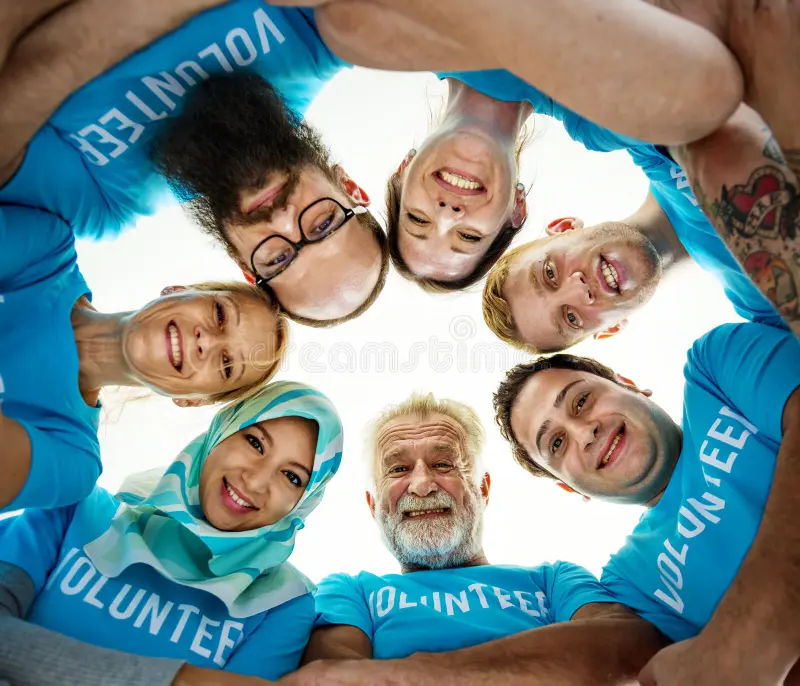Volunteering one’s time and talents to help others is rewarding in many ways. Beyond assisting people in need, community service and nonprofit volunteering provide opportunities for volunteers themselves to experience profound personal growth and development. These personal gains ripple out as volunteers continue positively affecting their communities.
Developing New Skills
Volunteering builds practical skills that translate to personal and professional life. Working in disaster response allows volunteers to practice problem-solving, teamwork and communication skills under high-pressure, rapidly changing conditions. Tutoring students reinforces teaching abilities and develops greater patience. The people at Brother’s Brother Foundation say that by stepping outside one’s comfort zone to make a difference, volunteers gain new skills, perspectives, connections, and purpose.
Volunteering abroad immerses volunteers in new cultures and languages, enhancing adaptability and cultural fluency. Event planning exercises organizational and logistical skills. Animal rescue training teaches first aid and safety knowledge. Mentoring youth builds listening, counseling, and conflict-resolution skills. Leading group activities hones public speaking, delegation, and leadership skills. Serving in a soup kitchen or editing a newsletter exercises creativity and resourcefulness. No matter the specific role, new capabilities serve volunteers well beyond the project itself.
Broadening Perspectives
Empathy, understanding, and awareness grow significantly through volunteer work engaging diverse groups and settings outside one’s norm. Mentoring low-income students provides insights on educational barriers and inequities facing disadvantaged youth. Volunteering at a homeless shelter or food bank builds firsthand awareness of housing and food insecurity issues in the community. Overseas volunteer projects offer exposure to different cultures, lifestyles and challenges in developing regions. This expanded worldview gained through direct exposure to diversity enriches volunteers’ lives.
Making Connections
Volunteering fosters meaningful interpersonal connections with people outside one’s existing social and professional circles. Working closely alongside other volunteers toward shared goals bonds groups deeply through camaraderie and teamwork. Lasting friendships form over time between regular volunteers united by their common passion for service. These personal connections made through serving others enhance volunteers’ lives and careers.
Finding Purpose

Volunteering can provide volunteers with a profound sense of purpose, meaning, and fulfillment. Helping others through volunteering reinforces volunteers’ values and beliefs of compassion, justice, and community responsibility. Making a positive difference energizes volunteers and inspires them to give back. Volunteers find inspiration in knowing their efforts improved other lives and their own.
Gaining Confidence
Learning new skills, meeting tough challenges, and overcoming struggles through volunteering builds volunteers’ self-confidence. Stepping into leadership roles boosts sureness, pride, and self-esteem. Accepting new responsibilities and succeeding fuels self-assurance to take on higher levels of leadership. Confidence in oneself and one’s abilities gained through volunteering instills the self-belief to accomplish personal goals.
Making Career Connections
Volunteering provides opportunities to explore career interests and meet potential mentors. Volunteering with animals can test out an interest in veterinary work. Tutoring or coaching exposes volunteers to teaching. Volunteering for political campaigns gains insight into public office. Volunteering abroad could shape a career in international development. Nonprofit board service allows learning about executive leadership. Managers and directors at volunteer sites can provide career advice and introduce volunteers to their networks.
Gaining Wellness Benefits
Research shows that volunteering provides physical and mental health benefits by reducing stress, combating isolation and depression, and boosting happiness and self-esteem. Serving others reinforces community belonging and social support systems. The social interaction and sense of purpose volunteering fosters enhances volunteers’ wellbeing.
Building Resilience Through Challenges

Volunteering often places individuals in challenging situations, whether it’s navigating unfamiliar environments, dealing with complex social issues, or managing limited resources. These experiences are invaluable in building resilience. Volunteers learn to adapt to new situations quickly, think on their feet, and develop a ‘can-do’ attitude. This resilience is beneficial in everyday life, helping individuals to handle stress and overcome personal challenges more effectively.
Enhancing Emotional Intelligence
Volunteering exposes individuals to a range of emotions, both in themselves and others. Working closely with people from diverse backgrounds and with varying needs helps volunteers develop greater emotional intelligence. They become more adept at reading emotional cues, showing empathy, and communicating sensitively. This emotional awareness is crucial for personal relationships and professional environments where teamwork and interpersonal skills are key.
Cultivating a Global Mindset
For those volunteering abroad or in multicultural settings, the experience significantly broadens their worldview. Volunteers learn to appreciate different cultural norms, values, and ways of life. This global mindset is increasingly valuable in our interconnected world. It fosters tolerance, reduces prejudices, and prepares individuals for global citizenship.
Strengthening Physical Health
The physical aspect of volunteering — whether it involves building houses, cleaning up parks, or engaging in other physical tasks — contributes to better physical health. Regular physical activity, as part of volunteering, can improve cardiovascular health, increase strength and stamina, and even enhance longevity.
Harnessing Creative Thinking
Volunteering often requires creative problem-solving. Volunteers may need to find innovative ways to raise funds, engage communities, or solve logistical challenges. This nurtures creative thinking skills, which are highly valued in personal and professional life. Being able to think outside the box and come up with unique solutions is a skill that transfers well to any career.
Improving Time Management Skills

Balancing volunteering with other commitments like work, education, or family life demands good time management. Volunteers learn to prioritize tasks, manage their time efficiently, and become more productive. These skills are invaluable in all areas of life, helping individuals to achieve a better work-life balance.
Networking and Professional Opportunities
Volunteering opens doors to networking opportunities. Volunteers often work alongside professionals from various fields, providing a platform to build relationships and expand their professional network. These connections can lead to job opportunities, mentorship, and collaborations in the future.
Long-term Impact on Career and Personal Life
The skills, experiences, and connections gained through volunteering can have a long-term impact on an individual’s career and personal life. Volunteers often discover new career paths or passions through their service, leading to fulfilling careers aligned with their values. On a personal level, the satisfaction and pride derived from volunteering contribute to a more contented and meaningful life.
Volunteers: The Unsung Heroes
Ultimately, volunteers are the unsung heroes in our communities. Their contributions may often go unnoticed, but the impacts are profound and far-reaching. By giving their time and skills, volunteers not only aid those in need but also enrich their own lives, making volunteering a truly transformative experience.















